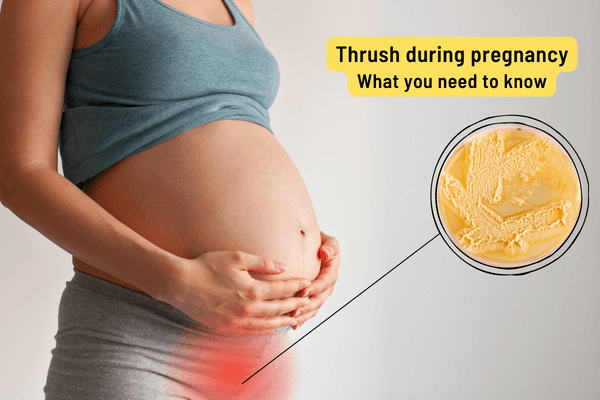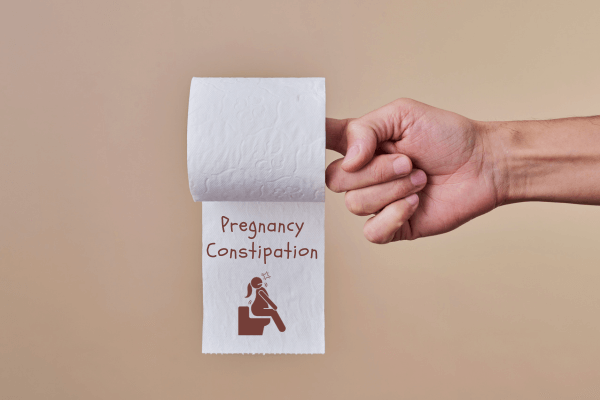Pregnancy is a different experience for every woman. Many women suspect that they’re pregnant within the first few days, whereas some women aren’t aware of their pregnancy for months.
Wondering whether you’re pregnant? Usually it takes at least a week after a missed period to get a reliable result on a home pregnancy test. But what if you would like to know earlier? How can you tell within weeks 1, 2 and 3?
We have listed some early pregnancy symptoms and signs that you can observe. These are the first signs to know if you are pregnant, even before a missed period. These early symptoms are similar to the ones women experience before they get their periods, hence, it might be hard to tell the difference. On suspecting, you should then take a pregnancy test to confirm. If you are still unsure, contact your doctor.
Early Pregnancy Symptoms – Signs you could be pregnant even before a Missed Period
- Raised Basal Body Temperature – If you have been using a basal body thermometer to measure the basal body temperature, you might observe that when you conceive, it will increase by 1 degree and will stay elevated throughout your pregnancy.
- Breast Changes – One of the earliest signs of pregnancy includes changes in breasts, such as tender and swollen breasts, with bumpy and dark areolas. These bumps are known as Montgomery’s tubercles. Progesterone and estrogen are the hormones responsible for this. Once you conceive, your body starts preparing for breastfeeding. The bumps on your breasts start preparing to produce more oils so that your breasts can stay lubricated, once you start breastfeeding.
- Implantation Bleeding and Cramping – Some women experience light spotting 6 to 12 days after they conceive. This is called implantation bleeding. It is usually a sign that the embryo has implanted itself in the uterine wall. It is normal to experience some implantation bleeding and cramps. You can differentiate between your period and implantation bleeding by looking at the colour of the discharge – implantation bleeding is usually light brown or pink, as compared to period-red. Also, it is not a continuous discharge. The bleeding could also be accompanied by mild cramping, more like a pulling or tingling as opposed to a painful period cramp.
- Frequent Urination – You might notice that you feel an urge to pee more frequently than usual. This symptom usually appears 2 to 3 weeks after conception. It is caused by hCG, the pregnancy hormone. It leads to an increase in the blood flow to your kidneys so that they can get rid of waste from your body more efficiently. Also, since your uterus is growing gradually, it would put some pressure on your bladder. This leads to less storage space for urine, causing you to go to the loo more frequently.
- Increased Smell Sensitivity – When you’re pregnant, your sense of smell becomes heightened. This can cause some previously mild odours to come off as unpleasant and strong. Many women report smell sensitivity as one of the earliest symptoms of pregnancy.
- Fatigue – When a woman is pregnant, a lot of energy is needed to build the placenta, the life support system for her baby. Hence, most moms-to-be start experiencing fatigue in the early days of their pregnancy.
- Changes in Cervical Mucus and Early Pregnancy Discharge – After conception, there are certain changes in the cervical mucus, accompanied by an increase in vaginal discharge.
- Mood Swings – You might start experiencing mood swings similar to the ones you feel during PMS (Premenstrual Syndrome) from as early as 4 weeks into your pregnancy. This is usually due to the hormonal changes that your body is undergoing.
- Light-headedness – In the first weeks you could also feel light-headed or dizzy. This is because your blood vessels dilate in preparation for the increased blood flow, lowering blood pressure and resulting in lightheadedness.
Signs of pregnancy from weeks 4 to 9 after conception
- Missed Period – The most commonly known indicator that you might be pregnant is when you miss your period, especially if your cycle is fairly regular.
- Morning Sickness/Nausea – Morning sickness onset happens somewhere around the 6th week of your pregnancy. The levels of the hormone progesterone increase, which causes the stomach to empty slower than usual, which results in morning sickness.
- Excess Saliva – Some moms-to-be experience an excess amount of saliva in their mouth, in their first trimester. This is also known as Ptyalism Gravidarum.
- Food Aversions – Since you have increased sensitivity to smell, you might also experience some food aversions. Any food, even your favourite meal, can make your stomach turn at its sight, smell or even thought.
When can I take a Home Pregnancy Test?
Even though you might be experiencing early symptoms of pregnancy, most women tend to wait for a week after they have missed their period before taking a pregnancy test. This is because pregnancy tests are more accurate a week after you have missed your period.
Hence, if you have missed your period and have been experiencing some of the above-mentioned symptoms, try a home pregnancy test to ascertain. You could also use a due date calculator to find out your estimated delivery date.
I have more questions. Where can I seek advice?
The period of early pregnancy is usually filled with tonnes of questions and doubts. At Veira Life we have a resource-filled prenatal guide, created by experts and vetted by our team of doctors and doulas, easily accessible to users online on their devices. It is designed to pre-empt and answer all your questions and help you prepare for a healthy and confident pregnancy. We also offer 1-on-1 personalised support through our highly experienced maternity coaches (doulas/midwives/childbirth educators/lactation counsellors). It’s easy to set up a video call with our coaches to ensure you get reliable and compassionate support tailored to meet your needs at every stage.







